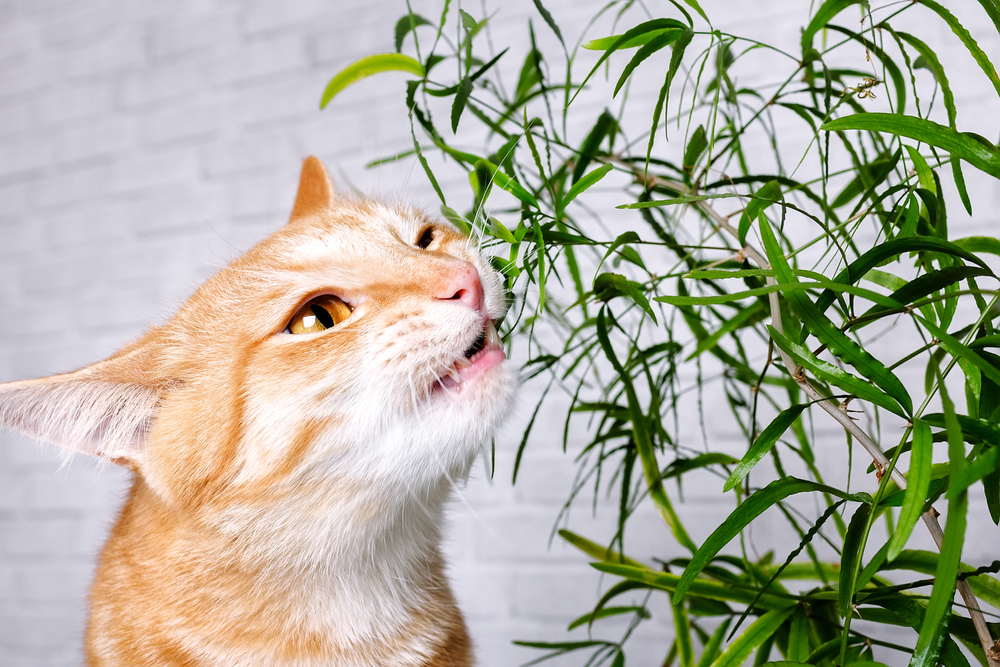Do you have poisonous plants for cats at home? We show you which popular houseplants can be bad for your house cat.
Houseplants bring a piece of nature into our homes and make us feel more comfortable. However, if you have cats, you should choose well which plants you buy, because some of them are bad for the animals!
Toxic plants for cats – you should know them
Cats love to play and even if plants are not their preferred food source, they still like to gnaw on the green stuff. Unfortunately, some of the garden and ornamental plants are poisonous, for example:
- Aloe vera
- Cyclamen
- Amaryllis
- Azalea
- Birch fig (Ficus benjamina)
- Calla
- Chrysanthemums
- Dragon tree
- Ivy
- Hydrangeas
- Hyacinths
- Lilies
- Tulips
- Desert Rose
And the magnolia in the garden can also be dangerous. In spring or at Christmas time we like to decorate with seasonal plants and flower arrangements, but also with these we have to be careful:
- Yellow narcissus (also: daffodil)
- Mistletoe branches
- Christmas star
Whether the leaves, tuber or flowers of the plant are poisonous is always different. Cats react to some of the poisonous plants with stomach problems, for example, and some can be fatal in the worst case (e.g. the calla). Therefore it is advisable not to have these plants in the household or garden with a cat. Who absolutely cannot do without it, puts houseplants into rooms, to which the room tiger does not have access.
Before you buy new plants, check with a professional to see if they are compatible with your pet!
Poisoning in cats – symptoms
The following symptoms may indicate poisoning:
- Vomiting
- Stomach cramps
- Diarrhea
- Balance disorders
- Circulatory collapse
- Dizziness
- Slow breath
- Excessive saliva
- Tremble
In case of suspicion of poisoning go to the vet as soon as possible! The vet will make a diagnosis and can administer the correct medication if necessary.
Toxic plants for cats – but which are not dangerous?
Cat grass! Who would have thought that 😉. Cat grass is a good option for consumption, especially for house tigers that stay in the house, because it helps them to choking out the indigestible hairballs. Further non-toxic plants are for example:
- Bamboo
- Thick leaf
- Melissa
- Room hibiscus

